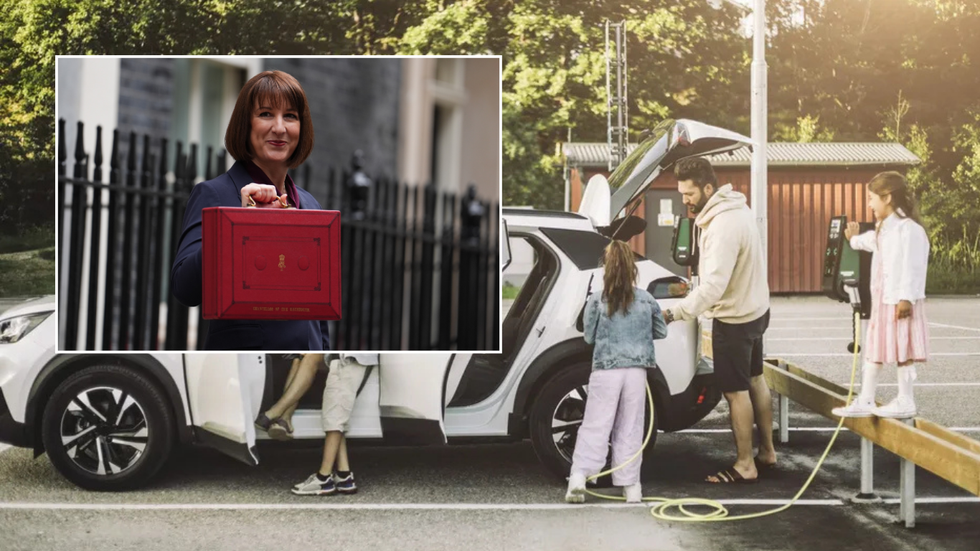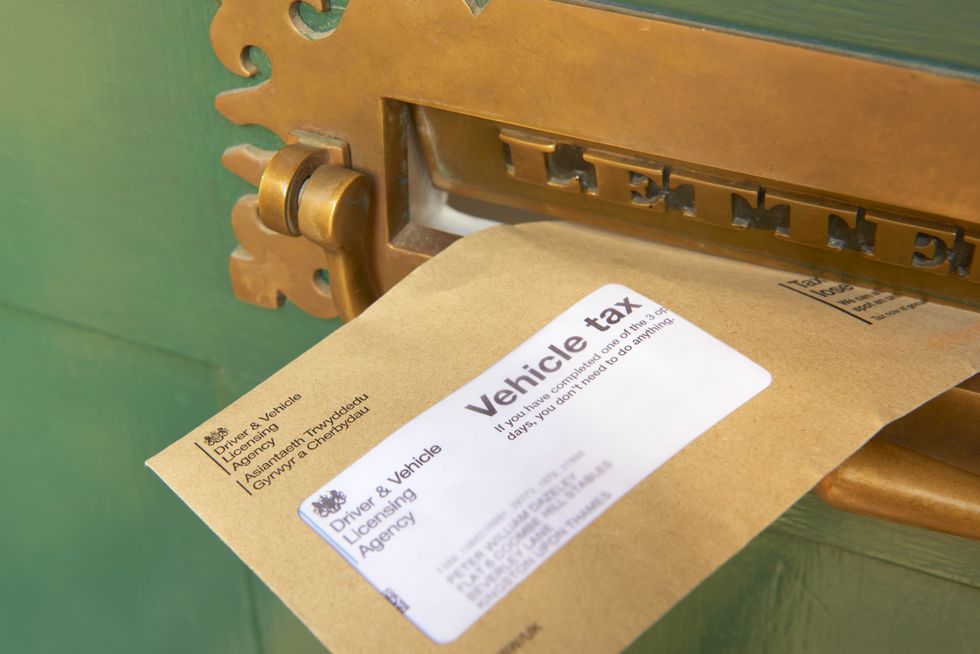Hemma Visavadia
Guest Reporter
Family cars and electric vehicles face being hit with the worst tax bill in years after Chancellor Rachel Reeves hiked prices in the Autumn Budget.
The increase in taxes could now see average family cars and owners of electric vehicles slapped with £2,125 luxury car tax from April next year, with around 70 per cent of new EVs set to fall under the controversial levy.
The tax will apply to vehicles priced above £40,000, affecting a wide range of family-focused electric models including the midrange Volkswagen ID.3 and Kia Nero EV.
But after huge criticism from both the car industry and drivers alike, Reeves is now facing mounting pressure to scrap the planned taxes, which experts warn could make every day electric vehicles unaffordable for many families.
Do you have a story you'd like to share? Get in touch by emailing [email protected]

The hefty surcharge, known as the expensive car supplement, will now cost drivers £425 annually for five years, starting from a vehicle's second year of registration.
Electric vehicles had previously enjoyed an exemption from this levy since 2020, but that is now set to end as the Government looks to level the playing field with petrol and diesel tax contributions.
Electric vehicles typically cost a third more than petrol and diesel cars meaning far more electric models will be caught by the tax threshold, experts highlighted.
The £40,000 price point that triggers the levy has remained static since its introduction in April 2017, despite significant inflation in car prices. Had the threshold risen with inflation, it would now stand at £51,827, protecting many more family vehicles from the charge.
"£40,000 doesn't represent luxury in the EV market, which tend to be more expensive than their diesel and petrol equivalents," Ginny Buckley, founder of electrifying.com, told The Telegraph.
But more shockingly, the tax will apply even if vehicle ownership changes hands during the five-year period it is charged.
In contrast, only 18 per cent of petrol and diesel vehicles will face the same charge. "It penalises family drivers, and business drivers who need a longer range. It's a poorly thought out policy," Buckley warned.
The tax covers what experts describe as "fairly humble models" rather than just luxury vehicles. Hundreds of thousands of EV drivers are expected to be caught by the additional charges, raising concerns about the affordability of electric vehicles for ordinary families.
The move comes as the UK sees a slowdown in electric vehicle adoption, with industry experts warning the tax could further dampen demand.
EV owners face additional costs beyond the luxury car tax, with Vehicle Excise Duty being introduced for electric vehicles from April. The VED will cost £10 in the first year and £195 for each subsequent year.
Combined with the luxury car supplement, EV drivers could pay a total of £3,110 in taxes over their vehicle's first six years of ownership.
Stuart Masson, editor of The Car Expert UK, warned that the luxury car tax "is not going to help EV adoption," which has been growing too slowly for the UK to still meet its ambitious net zero targets. The target would require at least 22 per cent of new car sales to be electric by this year, but figures showed sales to only have peaked 18 per cent.
LATEST DEVELOPMENTS:

Masson said: "For most people sitting on the fence, the tax won't change that much. But for a small number it could have a substantial effect on affordability. At the time the tax was introduced, £40,000 was probably fair, but all car costs have gone up since then. It should be realigned. The Tories weren't interested in doing that and neither is Labour."
Find Out More...
The increase in taxes could now see average family cars and owners of electric vehicles slapped with £2,125 luxury car tax from April next year, with around 70 per cent of new EVs set to fall under the controversial levy.
The tax will apply to vehicles priced above £40,000, affecting a wide range of family-focused electric models including the midrange Volkswagen ID.3 and Kia Nero EV.
But after huge criticism from both the car industry and drivers alike, Reeves is now facing mounting pressure to scrap the planned taxes, which experts warn could make every day electric vehicles unaffordable for many families.
Do you have a story you'd like to share? Get in touch by emailing [email protected]

The hefty surcharge, known as the expensive car supplement, will now cost drivers £425 annually for five years, starting from a vehicle's second year of registration.
Electric vehicles had previously enjoyed an exemption from this levy since 2020, but that is now set to end as the Government looks to level the playing field with petrol and diesel tax contributions.
Electric vehicles typically cost a third more than petrol and diesel cars meaning far more electric models will be caught by the tax threshold, experts highlighted.
The £40,000 price point that triggers the levy has remained static since its introduction in April 2017, despite significant inflation in car prices. Had the threshold risen with inflation, it would now stand at £51,827, protecting many more family vehicles from the charge.
"£40,000 doesn't represent luxury in the EV market, which tend to be more expensive than their diesel and petrol equivalents," Ginny Buckley, founder of electrifying.com, told The Telegraph.
But more shockingly, the tax will apply even if vehicle ownership changes hands during the five-year period it is charged.
In contrast, only 18 per cent of petrol and diesel vehicles will face the same charge. "It penalises family drivers, and business drivers who need a longer range. It's a poorly thought out policy," Buckley warned.
The tax covers what experts describe as "fairly humble models" rather than just luxury vehicles. Hundreds of thousands of EV drivers are expected to be caught by the additional charges, raising concerns about the affordability of electric vehicles for ordinary families.
The move comes as the UK sees a slowdown in electric vehicle adoption, with industry experts warning the tax could further dampen demand.
EV owners face additional costs beyond the luxury car tax, with Vehicle Excise Duty being introduced for electric vehicles from April. The VED will cost £10 in the first year and £195 for each subsequent year.
Combined with the luxury car supplement, EV drivers could pay a total of £3,110 in taxes over their vehicle's first six years of ownership.
Stuart Masson, editor of The Car Expert UK, warned that the luxury car tax "is not going to help EV adoption," which has been growing too slowly for the UK to still meet its ambitious net zero targets. The target would require at least 22 per cent of new car sales to be electric by this year, but figures showed sales to only have peaked 18 per cent.
LATEST DEVELOPMENTS:
- Motorists could see new Highway Code rules introduced for countryside roads amid high collision rates
- One of UK’s largest cities to consider implementing 20mph blanket speed limits - 'Reduce harmful emissions'
- Major car tax changes could see drivers with older cars pay more next April after Rachel Reeves's Budget

Masson said: "For most people sitting on the fence, the tax won't change that much. But for a small number it could have a substantial effect on affordability. At the time the tax was introduced, £40,000 was probably fair, but all car costs have gone up since then. It should be realigned. The Tories weren't interested in doing that and neither is Labour."
Find Out More...